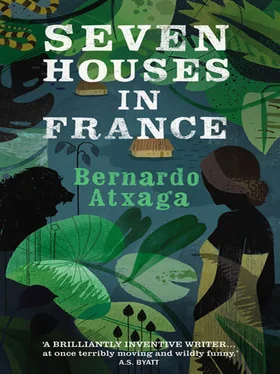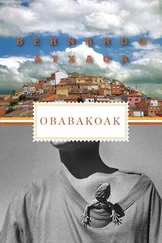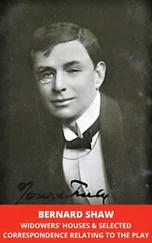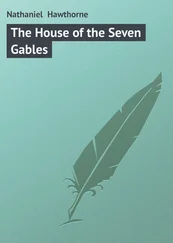He thought of Livo. He hadn’t been seen for several days either. He was probably still in the jungle. Perhaps he had gone to the girl’s funeral. Not that he was in any danger, given that he had stayed behind and seen nothing.
The hole in the air had grown smaller and the sound of drumming fainter. On the other hand, the monkeys were making much more noise. They had emerged from the undergrowth and were sitting very close now, watching the porch. They weren’t mandrills, but chimpanzees.
He put two more pieces of salami in his mouth.
Livo, of course, knew who had found the right path that led to the mugini , and if he told Chrysostome …
The thought floated in the same air that brought Donatien the sound of the drums. He sat looking at the mother-of-pearl box. He had to hide it. He got up, but, still undecided as to where to go, he stayed where he was. The chimpanzees came nearer and waited expectantly. He put the box in his pocket.
As soon as he left the porch, the chimpanzees rushed forward to grab the pieces of salami left on the plate. The hole in the air grew larger, and the urgent drumming pursued Donatien as he walked up towards the Place du Grand Palmier.
Cocó’s office was in a state of utter confusion. On the desk alone, Donatien counted two pairs of trousers, a shirt, a hat, two boxes of empty cartridges, a copy of La Gazette de Léopoldville , five glasses, three bottles, a handful of coins, a chicotte and a machete. The shelves were in even more disarray.
The office didn’t seem to him a suitable place to leave a pair of emerald earrings, and so he went into the bedroom. The contrast could not have been greater. The only furniture there was the bed and the bedside table.
He examined the bedside table and considered leaving the earrings between the bottles of cognac in the lower compartment, as if Cocó had absentmindedly put them there, but then he rejected the idea. No one would go and fetch a bottle while holding a pair of earrings. The logical thing was to put the earrings down somewhere first. Not anywhere obvious, on the bedside table, for example, but half hidden in the bed, under the mattress, beneath the pillow …
He saw the photo when he picked up the pillow. He didn’t recognise the woman at first because the bedroom was in darkness and he couldn’t quite make out her face. It was only when he lit the oil lamp that he realised who it was: Lalande Biran’s wife, the exquisitely beautiful Christine Saliat de Meilhan. She was wearing only a wet bathing suit.
Donatien felt his Adam’s apple pulsate violently, as if someone had struck him in the throat, and for a moment he couldn’t breathe. He fell back on the bed, acting out the shock of his discovery; but the mother-of-pearl box with its sharp edges was cutting into his thigh again, and he stood up.
He took the photo and ran to his hut to examine it more closely. In one corner was a note saying that it had been taken on the beach at Biarritz.
‘Donatien, you have just been handed a trump card. The Captain will never forgive Cocó for this,’ he heard a voice say. It was his intelligent brother, and he was quite right. The fact that Cocó was in possession of that photo of Christine Saliat de Meilhan meant many things, how many he didn’t know, but a lot.
‘Seven things, perhaps eight!’ he heard another voice say, and he knew at once who it was — his homosexual brother, irritated by this piece of good luck.
He knew exactly what to do with the photo. He would hand it to Lalande Biran as soon as he returned.
* * *
He waited for a moment to see if his intelligent brother would make any objection, but no voice came into his mind. He put the mother-of-pearl box away in his kit bag. Then he wrapped the earrings in a piece of rag and put them in his pocket. That way, he wouldn’t even feel them.
He walked over to Government House carrying the photo and sat down on one of the rocking chairs in the garden, looking out over the river. Soon he would hear the paddles of the Roi du Congo and, shortly afterwards, Lalande Biran would walk through the door. Donatien would salute, hold out the photo and say: ‘This was in Lieutenant Van Thiegel’s bedroom, Captain.’
‘THE MOST BEAUTIFUL metaphor was provided by the statue of the Virgin,’ wrote Lassalle in his notebook. He was preparing to describe the religious ceremony on the little island of Samanga. Once he had done that, he would add the two literary portraits he had already sketched out, one of Lalande Biran and the other of Chrysostome; then his article would be complete.
He read the sentence again — ‘The most beautiful metaphor was provided by the statue of the Virgin’ — then looked around him, hoping to find inspiration in his surroundings. The view from the boat was, alas, dreadfully dull — mortellement ennuyeux — even duller than the desert patrolled by the Foreign Legion. All he could see was the murky river and, on either shore, an inextricable, almost black wall, the first line of trees. Confronted by such a landscape, he found comfort even in the sound of the paddles and the sparks that flew up from the funnel along with the steam.
He found the soldiers of Yangambi equally uninspiring. In that respect, the members of the Force Publique and those of the Foreign Legion were the same. They were brave men, capable of the most dangerous of tasks and unperturbed by potentially deadly situations, but they were also very ordin ary and in no way like Achilles.
Lalande Biran had pointed this out in the interview Lassalle had made while they were travelling upriver. ‘You must remember, Monsieur Lassalle, why Achilles is so famous. It is not just because of his heroism. Ajax and many other men were equally brave, but Achilles was a melancholic. He knew that death awaited him. That is what lies at the root of his melancholy and that is also why we find him so attractive. Beside him, all the other heroes are mere oafs. They are still children despite their many escapades.’
Lalande Biran was an interesting man. He may not have been a melancholic, but he was deep. More than that, he wrote poetry. Lassalle had noted down a poem of his about a duel between kings: ‘Each in his own territory, but what territory can accommodate more than one king?’ It wasn’t a particularly remarkable piece, but it was a worthy enough effort, and the readers of Le Soir would enjoy it. The poem he liked best was the one dedicated to the sky of Yangambi: ‘It is not a lived-in heaven, but a desert; it is not Michelangelo’s heaven, peopled by angels and saints, and with the figure of God greeting Adam …’ He would try to write a commentary on it for some literary journal.
The Roi du Congo was progressing so slowly that it was easy to forget that you were travelling down the River Congo. He had to make a conscious effort to think this in order to remind himself where he was: in the heart of Africa, not in Europe. This, however, was a physical truth, not a spiritual one. His spirit was still in Europe, and his greatest joy was knowing that his stay in Africa was coming to an end.
‘The most beautiful metaphor was provided by the statue of the Virgin.’ He returned to his notebook. He was finding it harder than usual to begin the article. Africa was utterly exhausting. It wasn’t like strolling down the streets of Brussels, still less along the beaches or through the gardens of St-Jean-Cap-Ferrat. The climb to the top of Samanga had left him almost drained of energy.
‘We disembarked and began our march across the island,’ he wrote, having finally found a way of beginning the article. ‘In the vanguard went the sappers, hacking a path through the undergrowth with their machetes, followed by the veteran officer Richardson, several other white officers and twenty or so of the irregular soldiers known here as askaris . Then came the bishop and two priests, Captain Lalande Biran and myself, and behind us the young native men who wanted to be baptised and who were acting as porters for the statue of the Virgin. Bringing up the rear was a second group of askaris , while guarding our backs was the best marksman in the Congo, the officer Chrysostome Liège.’
Читать дальше












